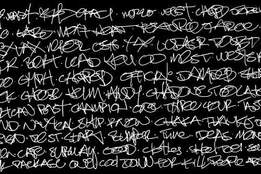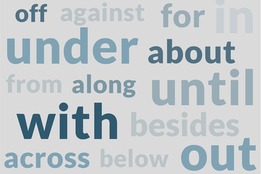You know what it looks like… but what is it called?
TAKE THE QUIZ
ad·jec·tive
ˈa-jik-tiv 
also ˈa-jə-tiv
: a word belonging to one of the major form classes in any of numerous languages and typically serving as a modifier of a noun to denote a quality of the thing named, to indicate its quantity or extent, or to specify a thing as distinct from something else
adjectively
adverb
Love words? Need even more definitions?
Merriam-Webster unabridged


A daily challenge for crossword fanatics.
TAKE THE QUIZ















Share